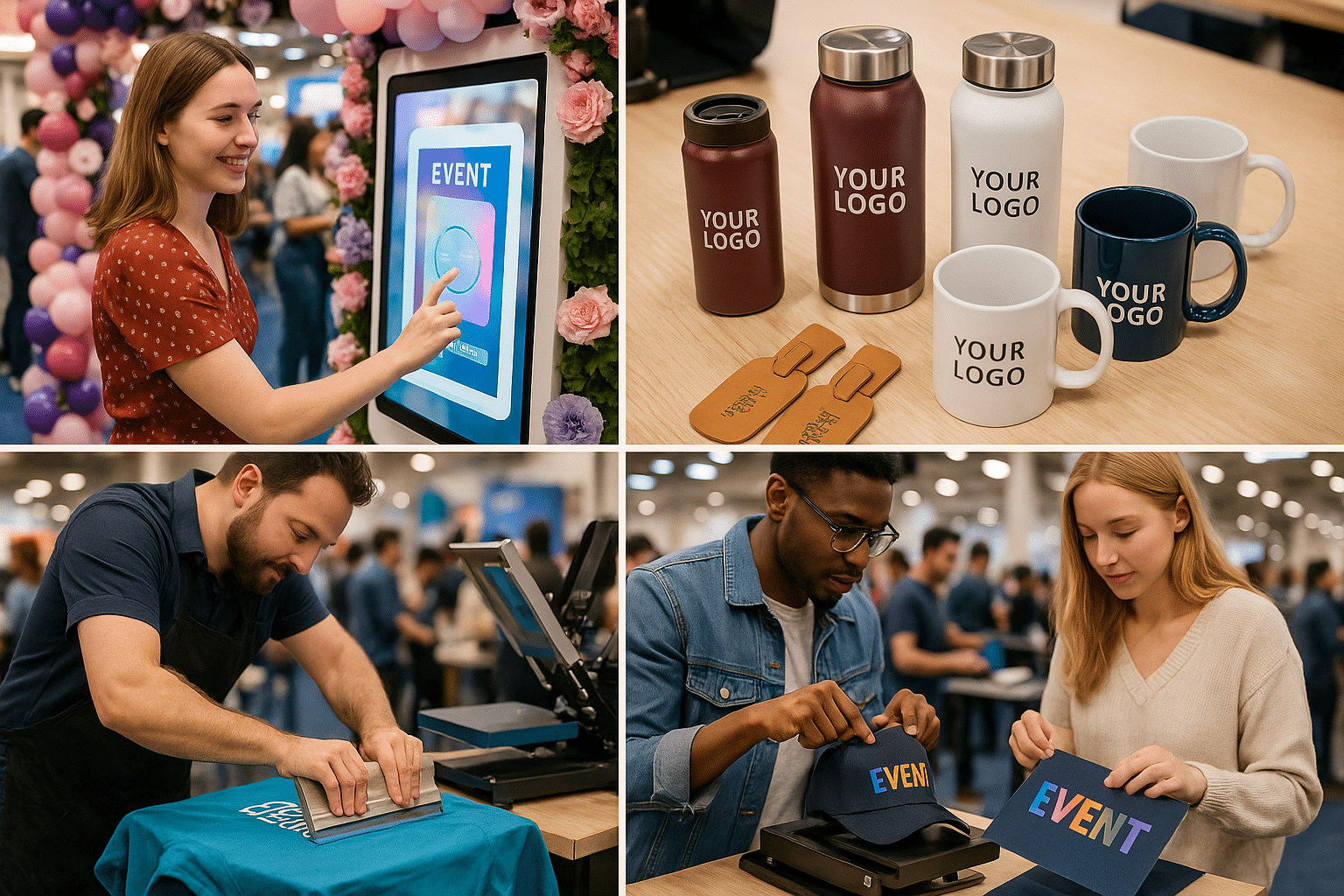Essential Event Planning Tips for Memorable Experiences
Essential Event Planning Tips for Memorable Experiences

Event planning is both an art and a science, involving careful consideration of various elements to create unforgettable experiences. This blog delves into key strategies, innovative trends like interactive photo booths, and DIY inspirations, all crucial for successful event execution. Whether you’re hiring a photo booth or exploring branding opportunities, our insights will guide you in crafting remarkable events.
The Art of Event Planning
The art of event planning demands a finely-tuned balance between creativity and organization, embracing both imaginative design and logistical precision. As a crucial part of the overall process, event management requires meticulous attention to detail, not just on the day of the event but throughout its planning stages. From setting a budget to understanding your audience’s preferences, every decision contributes to creating a unique and memorable experience.
Setting a budget is arguably one of the first and most critical steps in the planning process. Without a clear financial outline, it’s easy to get lost in the myriad of options available, leading to overspending and potential stress. Consider breaking your budget down into categories such as venue, catering, décor, entertainment, marketing, and interactive experiences like photo booths. Having a structured budget will also help you prioritize your spending and identify areas where you can save money, such as opting for DIY decorations or selecting a venue that includes essential services.
Selecting the right venue can make or break your event. It’s essential not only to find a location that fits within your budget but also one that resonates with your event concept and enhances the experience for your guests. Consider the size and layout of the venue, its accessibility, and the amenities it provides. Think about whether the venue can accommodate interactive elements, such as a photo booth, and explore different options and packages. Many venues offer bundled services, which could help streamline your planning process and potentially save you money.
Understanding your audience’s preferences is crucial for designing an engaging event. Put yourself in their shoes: What do they like? What are their expectations? Engage with your audience through surveys or social media to gather valuable insights. You can further personalize the event experience by incorporating branding elements, such as customized thermal bottles, water bottles, or mugs that reflect your event’s theme or purpose. These thoughtful touches demonstrate that you value your guests and have put effort into making their experience unforgettable.
A clear event concept is a guiding star throughout the planning process. This concept should permeate all aspects of the event, from the marketing materials to the décor and interactive experiences. Establishing a cohesive theme ensures that everything aligns, creating a memorable atmosphere for your guests. Whether you opt for a formal soirée or a casual gathering, a well-defined concept makes it easier to make decisions across the board, maintaining a focus on your event’s objectives.
Once the foundation of your budget, venue, and concept is set, the role of the event manager comes into play. An experienced event manager coordinates logistics, ensuring that every element works seamlessly together. From securing vendors to managing timelines, an event manager provides a valuable layer of oversight, allowing you to focus on the creative aspects. Their expertise in marketing strategies is essential, particularly if you aim to increase your event’s visibility and reach a broader audience. Promoting your event through social media, email campaigns, and attractive branding materials can make a significant difference in attendance.
Interactive elements play an indispensable role in enhancing guest engagement at events. One of the most popular trends today is incorporating a photo booth, which serves as both entertainment and a marketing tool. Photo booths not only provide guests with a fun activity, but they also generate social media buzz. Encouraging attendees to share their photos online can extend your event’s reach, creating valuable user-generated content that promotes your brand. When considering whether to hire a photo booth, you should account for the cost and consider the added value it brings to your event.
Furthermore, think about how photo booths can be customized to align with your event’s theme. You could opt for open-air setups, backdrops with your brand logo, or even props that relate to your concept. This level of personalization helps elevate the guest experience and deepens their emotional connection to your event.
As you push forward with planning, don’t shy away from DIY inspirations. Crafting custom elements like laser-engraved products, luggage tags, or creative cardstock invitations adds a personal touch that reflects a commitment to quality. DIY projects not only save money, but they also enable you to curate an experience that feels authentic and one-of-a-kind. Researching and incorporating trending preservation styles or crafting techniques can intrigue your guests and encourage them to engage with your event on a deeper level.
As the event approaches, behind-the-scenes insights will allow you to navigate the final stages of planning with confidence. Know that the unexpected can occur, and having a contingency plan is wise. Revisit your checklist to ensure every aspect of your event is organized and ready to go. From confirming vendor timelines to double-checking your supply of customized branded items like thermal bottles and caps, your preparation will pay off on the day of the event.
Lastly, consider collecting event success stories as you reflect on what works well. Encouraging feedback from attendees, whether through post-event surveys or informal conversations, will help you learn and improve future events. Capturing memorable moments through photography can also serve as excellent content for future marketing campaigns, showcasing your brand’s commitment to delivering exceptional event experiences.
Through dedicated planning, creativity, and an emphasis on engagement, you can create events that resonate with your audience long after the final guest leaves. Embrace the art of event planning and all the possibilities it brings, ensuring that every gathering is not just a moment in time, but a cherished memory for all who attend.
Conclusions
In conclusion, successful event planning requires a combination of creativity, strategic marketing, and attention to detail. By embracing interactive trends and DIY inspirations, such as photo booths and branded merchandise, you can create memorable experiences that resonate with your audience. Keep these tips in mind as you plan your next event to achieve true success.




